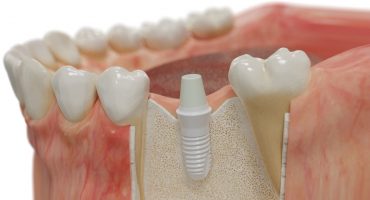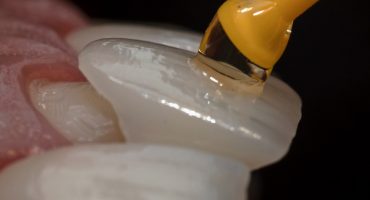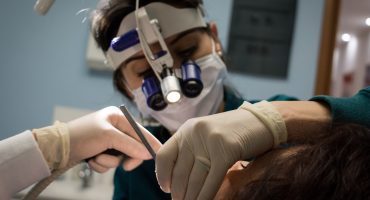A denture is an artificial tooth replacement. While partial dentures are connected to healthy teeth, full dentures replace the entire set of teeth.
Overview of this article
- Definition: Zahnprothese
- Types of Dentures
- When is a denture needed?
- What happens when inserting a denture?
- Costs for a dental prosthesis
- What are the risks associated with a dental prosthesis?
- What does the patient have to consider when using a dental prosthesis?
- What to do if the denture breaks?
- Care of a Denture




